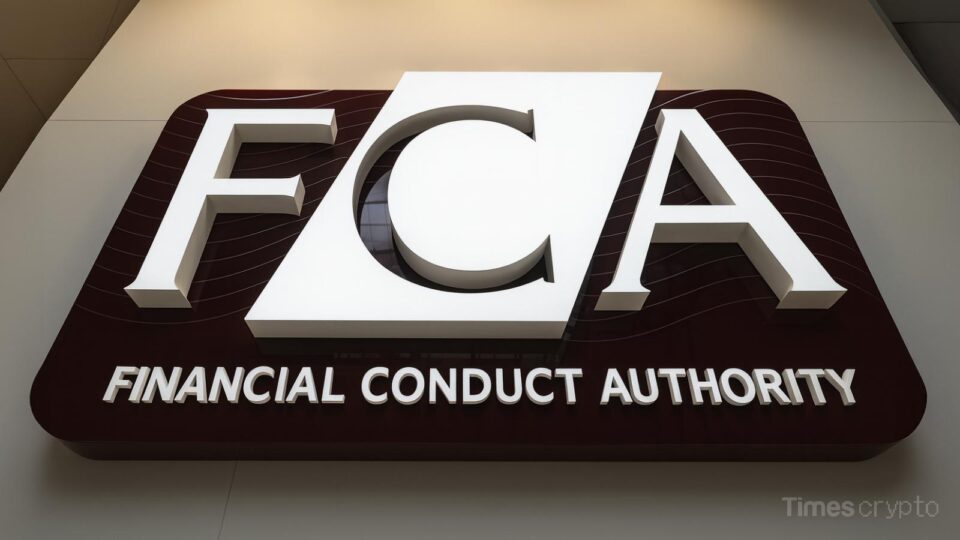
Key Takeaways:
- FCA unveils tokenization plan to modernize the UK’s £14 trillion asset management sector and enhance efficiency.
- Initiative supports the UK’s growth agenda, linking digital innovation with long-term economic strategy.
- Blockchain seen as a growth driver, as the FCA highlights its potential to reshape finance and boost competitiveness..
- Crypto ETNs reinstated, giving investors a regulated way to access digital assets through traditional markets.
Britain’s Financial Conduct Authority (FCA) has announced plans to support the adoption of tokenization in asset management, a move aimed at driving innovation, improving efficiency and strengthening the UK’s position as a global investment hub.
The regulator said the initiative will give firms greater clarity on how to use distributed ledger technology to represent assets digitally, helping the industry stay competitive as investment models evolve. It added that tokenized funds could increase competition, open new ways for consumers to invest and reduce costs across the sector.
According to the FCA, tokenization could broaden access to private markets and infrastructure investment while enabling consumers to benefit from more cost-effective and personalized financial products. It also offers scope to cut operational costs by making it easier and cheaper for firms to share and reconcile data.
The UK is already home to around 2,600 asset management firms overseeing £14 trillion for clients worldwide,” the FCA said. “Tokenization offers the potential to enhance how funds are run and distributed, and to open the market to more investors.
Furthermore, Simon Walls, the FCA’s executive director of markets, said the technology could mark a fundamental shift in how asset managers operate.
Tokenisation has the potential to drive fundamental changes in asset management, with benefits for the industry and consumers alike,” Walls said. “There are many things firms can already do under our existing rules. We stand ready to design the next stage with the industry.
The FCA’s proposals include guidance on how tokenized fund registers can operate within existing rules using the UK’s Blueprint model.
It also sets out a simplified model for fund managers to process transactions in both traditional and tokenized funds, along with a roadmap for developing tokenization further, including the use of public blockchains and on-chain settlement.
The regulator is also opening a discussion on how these models might evolve and what future regulatory changes could be required.
The FCA said the move fits into its broader digital assets strategy, aimed at fostering innovation under a clear, reliable regulatory framework that protects investors and promotes long-term growth. It also reflects the growing recognition of blockchain’s potential to reshape financial markets and expand the use of tokenized assets across the industry.
The FCA Sees Blockchain as a Driver of Long-Term Growth
The FCA’s fund tokenization plan is not a standalone initiative but an important part of the regulator’s wider push to align financial innovation with the UK’s economic growth objectives.
The move builds directly on the commitments set out in a January 2025 letter from Chief Executive Nikhil Rathi to Prime Minister Keir Starmer, in which the FCA pledged to adopt a more agile, growth-focused approach to regulation.
In that letter, Rathi outlined how the FCA intends to collaborate more closely with government to accelerate reforms that unlock capital, modernize markets and embrace digital transformation. He said the regulator was prepared to “take greater risks” and “prioritize resources” to enable innovation while maintaining consumer protection and market integrity.
The tokenization roadmap embodies that strategy by promoting the use of digital assets and blockchain infrastructure to make financial markets more efficient and accessible.
It reflects the FCA’s belief that technology-driven reforms can strengthen the UK’s position as a global financial center and help drive sustainable growth.

What ETNs Are and What to Expect from the Ban Lift
Exchange-traded notes, or ETNs, are unsecured debt instruments issued by financial institutions that mirror the performance of an underlying asset, such as Bitcoin or Ethereum.
Unlike exchange-traded funds (ETFs), ETNs do not hold the asset itself but instead promise to pay investors returns based on its price movements, minus any fees.
This structure allows investors to gain exposure to digital assets without the need to manage wallets, custody risks, or unregulated exchanges.
However, since ETNs are essentially debt obligations, investors face two layers of risk: market risk from crypto price swings and credit risk tied to the issuer’s financial health. If the issuer were to default, investors could lose money even if the underlying cryptocurrency has gained value.
The return of crypto ETNs is seen as an important step for Britain’s financial markets, potentially expanding access to digital assets through regulated channels and strengthening London’s competitiveness against other global hubs.
However, reports have emerged of administrative delays in implementing the decision, raising questions about the timeline and the UK’s ability to move quickly enough to capture momentum in digital finance.
Read More: UK Citizens Demand National Blockchain Strategy and Crypto Czar; Will the Government Act?


